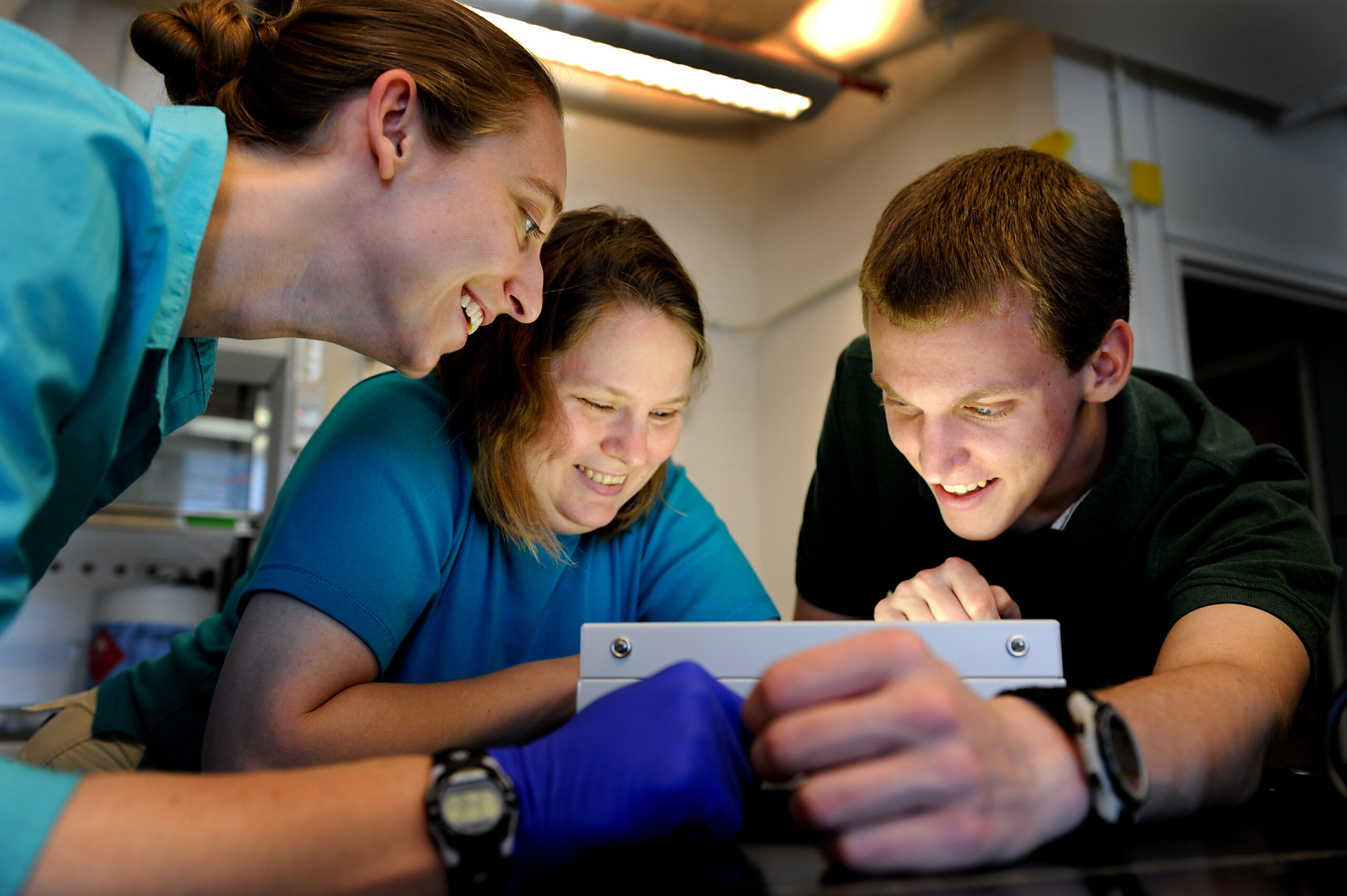
Doctoral Preliminary Exam
As a condition for doctoral candidacy, all students must pass a Preliminary Examination (Prelim). The exam consists of two parts, the written research proposal and an oral defense before the members of a student’s Advisory Committee. Students must complete both components of the preliminary exam before the first day of class during their third year in the Ph.D. program. Both parts of the doctoral preliminary exam are detailed below.
Written Preliminary Examination: Research Proposal
The preliminary examination process begins with the written component – a research proposal – at the end of a student’s second year in the program.
Doctoral students must write and submit two or more pre-proposals to their advisory committee that include a background, significance statement and list of specific research aims. The written proposal should focus on student’s doctoral research or a closely related topic. The advisory committee will then have two weeks to select one of the pre-proposals to be developed into a proposal; changes in aims can be made by the committee at this time.
Next, students must prepare their written research proposal independently, following the National Institutes of Health (NIH) formatting guide. Proposals are expected to be 7 single-spaced pages in length, including figures and tables (but not references).
See our formatting guidelines for the written proposal.
At least six weeks before their oral defense date, students must submit their proposal to their advisory committee. The committee will have two weeks to evaluate the proposal, at which time they will provide a written evaluation of the proposal to the student, to other members of the advisory committee and to the DGP.
Summary of written preliminary examination outcomes:
- Pass: the student has satisfactorily completed the written examination and can schedule the oral exam (within two to three weeks).
- Conditional Pass: the student provides written responses to concerns from each committee member, meeting with each member as needed (two weeks to complete). Each response is distributed to all advisory committee members and to the DGP. Committee members have two weeks to respond with a pass, conditional or fail to the DGP.
- Fail: the DGP alerts all committee members that a fail on the written exam evaluation was submitted. The advisory committee determines the opportunity for the student to repeat the written examination (within one week).
The Oral Preliminary Examination: Defense of the Proposal
The oral preliminary examination is scheduled within two to three weeks of satisfactorily passing the written portion of the exam. Students must provide any appropriate slides and handouts to their committee members two days before their oral exam date. The oral exam itself with consist of a (20-30 minute) oral presentation by the student describing their research proposal. Following their presentation, students will answer questions from their committee. Questions will focus on the research proposal itself but may include any relevant questions or questions about the expected proficiencies in microbiology.
Following the examination, the advisory committee will decide whether the student:
- Passes the exam unconditionally and proceeds to candidacy
- Passes the exam conditionally – the student must complete additional work to satisfy a perceived deficiency
- Fails the exam
Candidacy
After students pass both portions of their preliminary examination, their advisory committee and the DPG will sign the Graduate School documents certifying candidacy for the Ph.D.
Procedure for Appeal
Students may appeal the decision of their advisory committee. Appeals must be made to the Microbiology Graduate Programs (MGP) within two weeks of their committees decision or the decision will be final. Any student who has not satisfied the preliminary examination requirement within 3 years of entering our Ph.D. program will be dropped from the program, except by appeal in writing to the MGP. The MGP makes the final decision on all appeals.